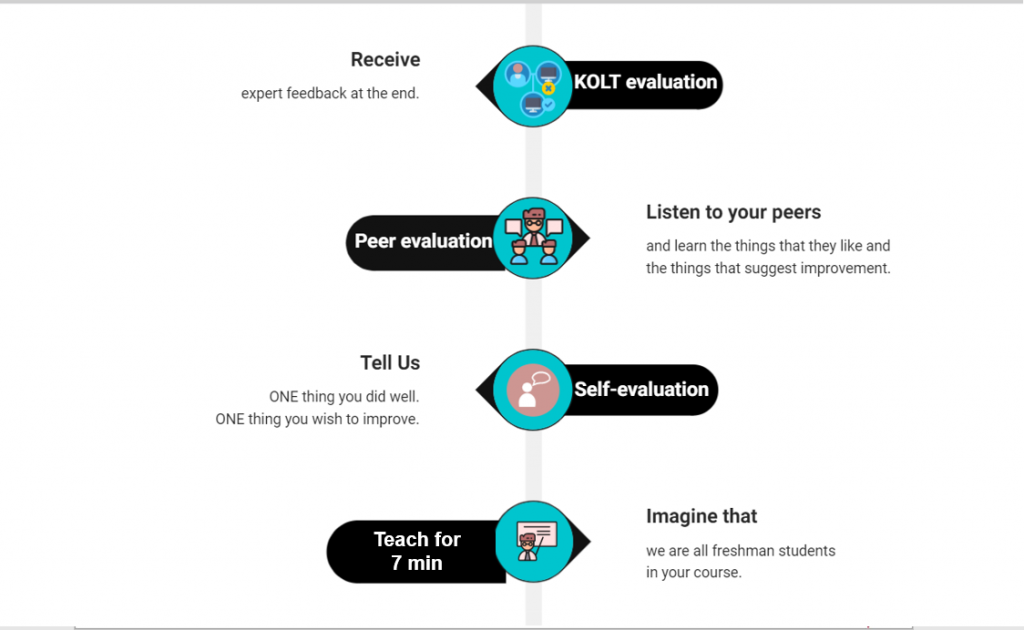The course content covers:
- Foundations and basics of designing effective teaching environments for higher education courses,
- Learning principles,
- Teaching in English,
- Integrating learning technologies into teaching practices,
- Grading, and
- Communicating with students and instructors.
The scope of the program is presented more specifically in the following:
Workshop covers the following major headings:
- TA responsibilities at KU (KU rules and regulations)
- Preparing for the first day
- Leading effective PS / LAB / DS
- Online teaching tools and practices
- Motivating and engaging students
- Assessing and grading fairly
- Promoting positive learning environment (how to establish rapport with students and how to set rules)
- Academic expectations of undergraduate students
- Giving quizzes and exams
- Conducting office hours
- One-to-one teaching
- Advising
- Assessing teaching
- Working with faculty
- Getting ready for microteaching
Microteaching sessions are organized as a group activity. Each microteaching session is attended by five to seven participants. Each participant gives a seven-minute presentation on an introductory topic in science, engineering, social science, humanities, health, economics, marketing, etc. Participants are expected to choose their presentation topics based on their discipline.
Microteaching sessions are delivered in classes that are equipped with screen, boards and other necessary basic equipment. If the TA’s weekly responsibility is to solve problems on the board using a marker, then he/she is expected to do so in microteaching too. In some courses such as computer programming, TAs can integrate technology into their presentations. For those who plan to deliver “high-tech” presentations, it is highly advised to get into contact with KOLT staff to arrange the necessary set-ups. In the case of remote teaching, microteaching sessions can be delievered via Zoom. KOLT offers guidance on effective teaching in online learning environments as well.
After each 7 min teaching performance, the presenter is to evaluate their own performance. Then, group participants and KOLT staff give immediate feedback on each presentation. KOLT staff evaluate each performance based on pre-determined criteria. The structure of the microteaching practicum process is shown in the following visual. in the following visual.
TAs with low performance are invited for a redo microteaching session(s) in order to give them the opportunity to apply feedback and improve their teaching skills.
Presentations are recorded so that TAs are able to watch their performance later on and make self-evaluations for their own performances.

This workshop outlines important aspects of learning with reference to following purposes:
- Understanding connection between learning and teaching
- Creating effective learning environments in consideration of prior learning, organization and application of knowledge
- Enhancing motivation, engagement and metacognition
- Assessment of learning vs assessment for learning
- Role of feedback
This workshop provides guidance on the effective use of English in the classroom. Major topics covered include:
- English Medium Instruction (EMI) Best Practices and Challenges
- Signposting language and language hinges
- Classroom discourse and student-centered lesson structures
